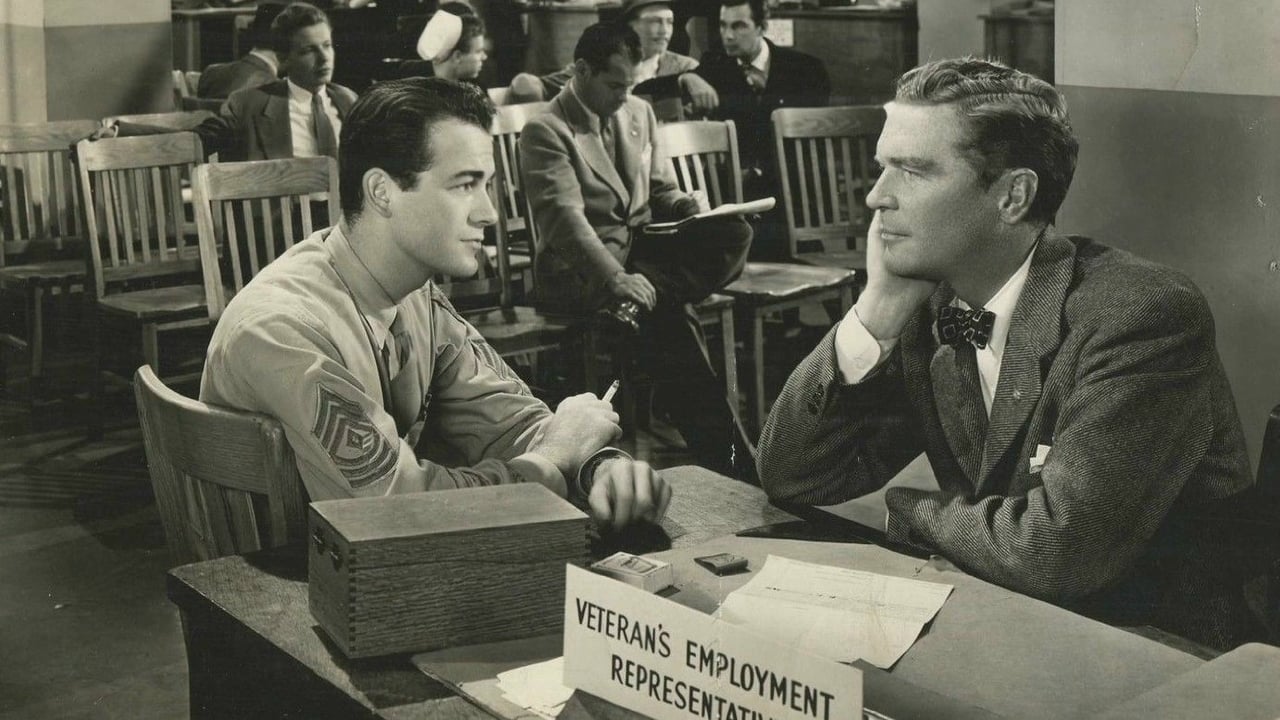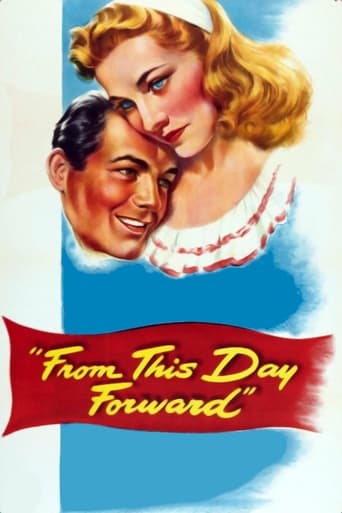


Yawn. Poorly Filmed Snooze Fest.
... View MorePurely Joyful Movie!
... View MoreAwesome Movie
... View MoreThe acting in this movie is really good.
... View MoreAlthough it hurt to see the lovely, graceful Rosemary DeCamp shoe-horned into the role of a Bronx housewife (with matching accent) that fit where it touched this is, overall, a pleasantly satisfying entry even if it can't decide whether it's a social documentary, a romantic drama, or something in between. The ever reliable Harry Morgan lends both gravitas and stability to the mis-matched but earnestly sincere leads Joan Fontaine and Mark Stevens. It's virtually unknown - I, a lifelong moviegoer, had never heard of it - but certainly deserves more outings and/or a DVD release, which I would probably buy if it came my way. Meanwhile all I can do is recommend it.
... View MoreJoan Fontaine was hardly the right choice to play a Bronx housewife and yet, opposite newcomer Mark Stevens, she gives a sensitive, believable performance as a young woman coping with poverty, marriage and the adjustments that have to be made when hubby returns from the war. Small in scale when compared to films like 'The Best Years of Our Lives' which dealt with these kind of problems on a broader canvas. And yet, the realistic sets and the sincerity of the leading players does a lot to make this modest film both watchable and absorbing.Rosemary DeCamp, Harry Morgan and Bobby Driscoll are fine in the chief supporting roles. The soap opera effects that might have ruined this sort of story are missing--instead it settles for an honest treatment of post-war problems faced by many young couples in the '40s.Mark Stevens would later play Olivia de Havilland's husband in 'The Snake Pit' with even more success. (Joan Fontaine's sister, in case any of you don't know it!!)
... View More'From this day forward' is a rare enough film in Hollywood, part of the post-war cycle of coming-home movies, of GIs returning from the ironic certainties and status of war, and finding the stability of home fraught and precarious: jobs gone, identity questioned, loved ones changed. The masterpiece of this cycle is 'The Best Years of our lives', and 'Forward' may not be in that class, despite some critics' admiration for it. But it is a different kind of film from Wyler's - the latter shows the war as an irrecoverable breach, a disjunction between past and present, where the post-war world cannot simply return to that before it. Its heroes were men with secure identities before the war took them away. For Bill Cummings, the war was a break from a life of banality, mediocrity, poverty, unemployment, frustrated ambition, even brushes with the law. Though rigorously focused on the domestic, on men who have been, to put it crudely, feminised, dependent on a bread-winning wife, denied an arena in which to express their masculine status, and thus paving the way for the melodramas of Minnelli and Sirk, the film is not a melodrama in the sense of giddy emotional highs and miserable lows. 'Forward' is rare in Hollywood because it is content to focus on unremarkable ordinariness, the undifferentiated, relentless grind of life, from which brief epiphanies or happiness can be salvaged. These are lives gradually frayed by economic circumstance - there is no melodramatic adultery or contrived plot mechanisms like that; even the singular encounter with the obscenity laws, not exactly the fate of every John Doe, is made bathetic and normalised. The best and most characteristic sequence of the movie is when Bill gets a night-shift job, while his wife Susan still works by day - obviously they rarely meet, one asleep when the other comes home. No-one, of course, is to blame, but frustrations mount, tempers wear, and the couple gradually become less familiar to one another, have to watch what they say, becoming clumsy, resulting in that wonderful scene on the bridge where Bill gives Susan a ghastly anniversary present with money hocked from the tool kit on which he depends for his livelihood. Although the war is a crucial four year break tearing the couple apart, it is absent in narrative terms; present only in the scene where Hitler blares from a megaphone as Susan makes ill-timed plans for motherhood. For most people, the film suggests, in America at any rate, the war was a good thing, a rare burst of prosperity - now, for most people, the grind must begin again. Very few Hollywood films of the period suggested this, such fears were usually displaced onto the nightmares of film noir. And, bravely, the film never cops out - although seemingly upbeat, Bill and Susan have even more problems at the end than when they began - she is pregnant, he is still unemployed, the final gigantic crane shot of this tiny couple on a huge bridge, their uncertain future stretching before them, is very poignant.The film's two main formal devices - moving from the individual to the wider social context, showing that Bill's is only one story among millions, and also the external circumstances that decide his personal well-being; and moving between past and present, ironising the optimism of the title - create a narrative tapestry of unusual depth in Hollywood, a series of vignettes revealing a particular time and place in American history, as well as the people that lived it, the families and individuals, the entrepreneurs and workers, the artists and housewives. This is a thoroughly decent film in the best Hollywood liberal tradition, and I'm glad it was made. I can't say i enjoyed it very much. Maybe I like the 'contrivances' of melodrama too much. The acting is amiable - and Joan Fontaine is enchanting, freed from her mousy persona - but lightweight, especially compared to the giants in Wyler's film. I don't know, maybe decency just isn't always very exciting.
... View MoreGood example of studio films from the forties. A love story,but also a history lesson on the labor unions trials and problems of getting a foothold in industry.True to the novel, Mark Stevens and Joan Fontaine are perfectly cast.
... View More